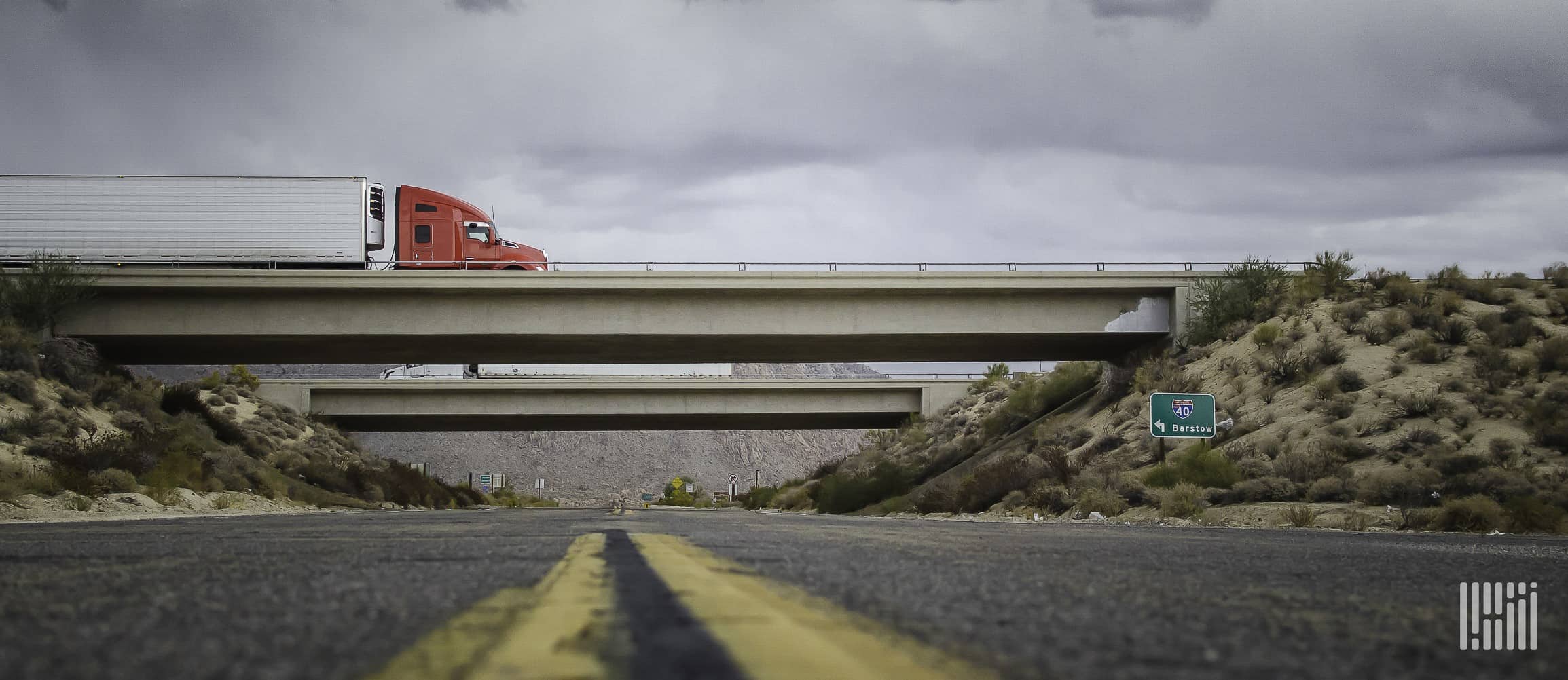Among the many responsibilities that fleet owners have, knowing the right insurance coverage to have is of the utmost importance. One of the biggest factors that help owners determine what type of fleet insurance they need is their fleet size. Aside from size, there are numerous additional characteristics that differentiate large vs small fleet trucking insurance.
Read on to learn more.
What Is Small Fleet Insurance?
Small fleet trucking insurance provides the benefits of general liability, collision, physical damage, and motor cargo coverage. Small fleet trucking insurance policies also benefit fleet owners because it’s more affordable for them to have their trucks insured under one large policy than to have multiple individual policies.
How Many Trucks Do I Need for Fleet Insurance?
The amount of trucks required for fleet insurance varies from insurer to insurer. In most cases though, insurers will allow fleet owners to purchase small fleet trucking insurance with as few as two trucks in daily operation.
What Is Considered a Small Fleet of Trucks?
Small fleet truck insurance is the insurance coverage required for fleets with multiple trucks, as long as that number of trucks does not exceed ten trucks.
How Do You Qualify for Fleet Insurance?
In order to qualify for fleet insurance, there are a couple of steps that fleet owners need to take. The first step is to make sure their fleet meets the insurance company’s minimum number of vehicles required for fleet insurance eligibility. Fleet owners must also ensure that all of the vehicles they’re planning to insure are owned by the same singular entity.
Comparing Large & Small Fleet Insurance
There are numerous ways large fleet trucking insurance and small fleet trucking insurance are different. They also share some commonalities. When comparing large and small fleet trucking insurance coverage, some important details to keep in mind include:
Insurance Coverage
Since both large and small trucking fleets have similar needs, their coverage policies reflect that. The types of coverage that large and small trucking fleet insurance offers includes but isn’t limited to collision, physical damage, and uninsured motorist coverage.
Driver Policies
Among the differences when it comes to small fleet trucking insurance policies and large fleet insurance policies is the flexibility afforded to large fleets when it comes to ‘any driver’ policies.
Any driver policies come at a higher premium, but they allow any driver to drive any vehicle in a fleet which saves the owners of large fleets valuable time and provides more flexibility. Since it’s easier to determine the driver of a truck in a small fleet, owners can take advantage of lower premiums by obtaining a ‘Named Driver’ policy. Named Driver policies assign drivers to designated vehicles which is a much more manageable task with a smaller fleet.
Charging Methods
Large fleets have more options when it comes to payments than small fleets do. That’s because small fleets primarily use the method of vehicle charging, which entails paying a certain premium cost per unit. Since it’s not based on revenue or mileage it tends to work to the benefit of small business owners.
The charging methods for larger fleets include mileage based policies and gross revenue policies. Gross revenue policies refer to a specific rate being applied monthly based on the revenues that were generated for a given month. Mileage-based policies refer to charging based on how many miles a driver travels.
Insuring Multiple Vehicles vs Small Fleet Insurance
Although the idea of simply insuring individual vehicles as opposed to obtaining one big policy may seem appealing, the reality is that it’s likely that fleet owners will still need to purchase fleet insurance at some point. Having one insurance policy to manage instead of multiple cuts down on the amount of paperwork, the number of payments, and the time spent on administrative tasks.
Additionally, since it’s likely cheaper to have one small fleet truck insurance policy instead of multiple individual policies, the pros outweigh the cons. The only time where fleet owners could potentially gain from managing multiple individual insurance policies instead of one small fleet insurance policy is if it’s possible to obtain a no-claims discount or an NCD. No-claims discounts are an option for small businesses with just a few vehicles and no accidents.
Where to Get More Information About Small Fleet Trucking Insurance
Understanding the requirements and insurance coverage options available for both large and small fleet trucks is vital for purchasing the correct insurance policy. Getting more specific details about small fleet trucking insurance can be a tall task without knowing where to look. That’s especially the case considering the subtle differences between small fleet trucking insurance and large fleet insurance.
FAQs
Fleet vehicle insurance is the type of insurance coverage that is required of businesses that use multiple vehicles for their daily business operations.
Fleet insurance can cost fleet owners between $1,000 and $2,000 annually.
Whether or not fleet insurance covers personal use will depend on the insurer.
We are excited to announce the launch of move.freightwaves.com, a revolutionary resource designed to transform how consumers choose auto-shipping companies. Check it out today!


